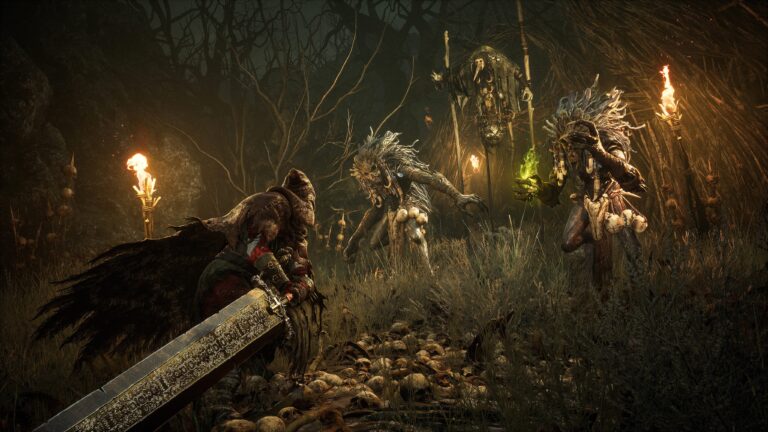Final Fantasy is one of gaming’s most enduring franchises. In the 32 years since its Famicom debut, the series has gone through dozens of changes across its mainline entries, sequels, and spin-offs. Final Fantasy 15 continued this mantra with its divisive, action-driven open world installment. However, in appealing to the widest possible audience, Square Enix diluted the RPG elements in what was once one of the premiere role-playing franchises.
With the Final Fantasy 7 Remake looming, it’s time to look toward the franchise’s future, examining how Final Fantasy 16 can become worthy of the franchise’s name.
https://www.youtube.com/watch?v=qGhHNK-bv-8
Where Final Fantasy 15 Went Wrong
Final Fantasy 15’s troubled development hampered its creative vision. Revealed to the public as Final Fantasy Versus 13 in 2006, it was re-revealed as Final Fantasy 15 seven years later. In the time since its conception and November 2016 release, Hajime Tabata took Tetsuya Nomura’s position as game director.
“I myself am not getting any younger. I don’t want to be frantically pushing buttons,” said Tabata, discussing Final Fantasy 15’s combat; it’s easy to see where the train derailed.
Its development history is especially relevant because of Final Fantasy 12. Yasumi Matsuno and Hiroyuki Ito co-directed Final Fantasy 12, with Ito handling the game’s battle mechanics. However, Matsuno resigned as director due to health issues a year before release, being replaced by Hiroshi Minagawa; all this amidst a massive restructuring of upper management as key staff like Hironobu Sakaguchi, the series’ creator, left Square Enix.
While both games feature underdeveloped characters and plot elements due to their development cycles, Final Fantasy 12 kept the series’ role-playing lineage intact with its gambit system, one of the genre’s most customizable party management systems.
Simple Combat and Customization
With the Final Fantasy 7 Remake reimagining a classic game through a modern lens with new mechanics and combat, Final Fantasy 16 would benefit from a similar melding between old and new, mixing a new real-time combat approach along with reintroducing the gambit system.
Final Fantasy 15’s biggest issue was its distancing from the complexity associated with RPGs. Properly executed role-playing games are exciting because they tug at something more cerebral than most genres. Whether it’s a traditional RPG, strategy game, or an action RPG, the genre has endured by providing intense resistance through underlying systems, which necessitates making difficult decisions.
It’s this contemplative nature that’s missing from Final Fantasy 15. Not all action RPGs need deep combat, though, without that, players are left to lean on mechanics or concepts like character customization and progression systems. Therein lies the problem. All of Final Fantasy 15’s gameplay-centric systems undermine the genre’s intellectually stimulating aspects.
With its basic progression tree and simplistic party customization, reintroducing the gambit system would bring back what 2016’s entry lost.
Automation as a Reward Loop
Final Fantasy 15 launched without the ability to switch characters mid-combat, but this was patched in a year after release. When not controlling party members, AI acts as expected, only accentuating the game’s already automated nature with combat that requires little critical thinking.
Final Fantasy 12’s gambit system has been criticized because of its potential to make the game play itself. While a highly customized and well-thought-out gambit build automates encounters, this surface level criticism misses the point.
An average person brute forcing their way through the game will struggle during the tougher encounters, such as boss fights. Without gambit builds and party set-ups suited to specific situations, players will spend a lot more time sifting through menus, wasting items, and swapping dead or disabled characters out of the active party.
Final Fantasy 12’s automation is the reward for possessing the mental faculty to achieve that end-result. After spending over 15 minutes fine-tuning gambits and party composition after a difficult situation arises, players will want that reprieve. Final Fantasy 15’s automation, on the other hand, is tied to every facet of its combat. It doesn’t provide its automation as a reward for any mental acuity. Rather, that’s just how the game works regardless. It tries to circumvent this by mandating side quests, as only playing story missions leaves players under-leveled for its final hours. It’s a low bar to which Final Fantasy 12—with its more in-depth systems—doesn’t resort.
How Gambits Work
The gambit system is comprised of two parts: the target and the action. The target dictates the condition that needs to be met for AI to act. The action decides how AI reacts when the condition is met. A simple gambit slot might look a little something like this.
The target might be “Foe: status = haste”. In that situation, the ideal action one would want is to cast “slow” or “slowga”. A more complex gambit slot might be “Self: status = blind”. In this case, players have multiple viable actions. They can make the character use an item, cast “blindna”, or have them perform “Sight Unseeing”, a special attack only available to blind-afflicted characters.
Gambits achieve a greater degree of control through their hierarchical nature. It’s not enough to set an action for a target. Players must also prioritize them.
A gambit might tell AI to attack any nearby enemies. Another gambit might heal party members below 30% health. If that attack gambit is placed at the top, the AI eschews healing in favor of attacking, only healing once all surrounding enemies are gone.
This hierarchical nature combined with the volume of customization options makes the gambit system one of the most addictive party micro-management systems in gaming. Other action RPGs, such as the Tales of series, feature somewhat similar systems. Although, their limited scope makes them feel more like optional tweaks for number-crunching fiends rather than integral systems around which the games are built.
Assessing Final Fantasy’s Future
Final Fantasy 15 has a lot of issues. It has a subpar and incomplete narrative that requires an anime series, film, and DLC episodes to parse out its meaning. Its real-time combat is as basic as it comes, with auto dodges and parries that don’t require precise timing, defeating the purpose of parries in the first place. Above all else, however, FFXV’s biggest failing is its simplified role-playing elements. The ascension grid provides insignificant personalization. This is further cemented by a lack of equipment, characters with preset roles, and basic party management.
If Final Fantasy 16 hopes to bounce back from its predecessor’s failures, it needs to remember what it means to be a role-playing game. If the next entry remains real-time, the gambit system’s deep customization can offset the moment-to-moment gameplay. Combining deeper combat along with the gambit system provides the perfect recipe for an instant classic.
No related posts.







This wasn’t an article about what ffXVI needs to be it was and ateicle about way pissed you off about ffxv.. Agreed xv wasn’t perfect, bit it sis a lot of good getting new people to play the franchise. Is the combat basic? Sure, it’s by no means complex, bit that’s not entirely a bad thing. Let’s be honest ffx wasn’t great, and ffx-2 destroyed everything ffx made us feel. Ffxiii was hot gorbage ontil you were many hours deep into the game. It’s easy to rag on SE for trying what they did with 15……. Let’s be honest the… Read more »
I deftinely agree that FFXV missed the mark when it comes to combat. The whole fun of the JRPG genre is the complex game play and narrative. The most fun part is that you don’t have to button mash; you have to think about which characters to take into a battle and with what abilities to accomplish that challenge. As I’m getting older I look to games like final fantasy tactics and fire emblem: three houses as the type of game I prefer to play. These games still allow me to remain very cerebral about combat.
I loved FFXV and hated FFXII. The gambit system sucked. If you want to play FFXII then go play it. FF changes with each game, some great some not so great. But each game appeals to different fans. Take FF VIII for example, I didnt like it but some people think it’s one of the best ones.